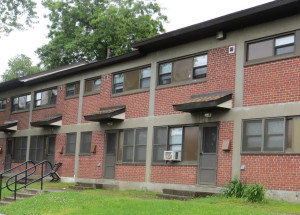Looking back on your high school days, you probably remember lessons like long division or the day you finally mastered a cursive “Q.” But what about the class where you learned to balance a checkbook? Or apply for a car loan? While Baby Boomers were more likely to reap the benefits of a home economics class covering life skills and simple financial planning, Millennials are now facing a devastating education gap when it comes to basic financial literacy. Now, a pair of Worcester natives are on a mission to target this educational blind spot and help money management make sense to our future business leaders—before it’s too late.
Recent Clark University graduate, Rebecca Liebman, and her brother Michael, are harnessing the power of the Internet to tackle the problem of financial illiteracy among Millennials. They are planning to launch a website called LearnLux.com, which would give Millennials the tools to control and understand their financial futures. Michael Liebman, LearnLux president, is currently majoring in finance at Bentley University, but his passion for figures extends back as far as age seven, when, according to their website, he “proclaimed [ . . . ] that his favorite thing to do was count money.”
“The 19–35-year-old demographic has the worst national average for credit scores.”
 The lack of financial literacy among Millennials has resulted in some frightening statistics. Research by the credit information service, Experian, has revealed that the 19–35-year-old demographic has the worst national average for credit scores, and a significantly unfavorable debt-to-income ratio than any previous generation. According to a recent poll by the Brookings Institution, about 50% of college freshmen surveyed are incorrect or entirely ignorant of the amount of student loan debt they carry. While many hypotheses have been put forward as to the cause of the lapse in financial education for Millennials, the takeaway is clear: Millennials must be taught to manage their own money before they can competently take the helm of larger financial responsibilities.
The lack of financial literacy among Millennials has resulted in some frightening statistics. Research by the credit information service, Experian, has revealed that the 19–35-year-old demographic has the worst national average for credit scores, and a significantly unfavorable debt-to-income ratio than any previous generation. According to a recent poll by the Brookings Institution, about 50% of college freshmen surveyed are incorrect or entirely ignorant of the amount of student loan debt they carry. While many hypotheses have been put forward as to the cause of the lapse in financial education for Millennials, the takeaway is clear: Millennials must be taught to manage their own money before they can competently take the helm of larger financial responsibilities.
LearnLux’s founders may have a better handle on their finances than many of their peers, but that doesn’t mean they’re taking on this challenge alone. Their innovative approach to financial education for young adults has convinced the MassChallenge startup accelerator to select LearnLux as one of its 128 finalists for 2015. While the program is still in its testing phases, it seems clear that these young entrepreneurs are well on their way to bridging the gap in Millennial financial literacy.



 The ABL program requires one adult in each household to work or attend school for a minimum of 1,200 hours per year, which is an average of 23 hours per week. Support services to reach for these goals are provided through grants as part of the program. If the residents do not make an effort to abide by the program rules within three years, they face eviction. The disabled and elderly are not a part of the mandatory participation program, so they will not be compelled to leave public housing.
The ABL program requires one adult in each household to work or attend school for a minimum of 1,200 hours per year, which is an average of 23 hours per week. Support services to reach for these goals are provided through grants as part of the program. If the residents do not make an effort to abide by the program rules within three years, they face eviction. The disabled and elderly are not a part of the mandatory participation program, so they will not be compelled to leave public housing. The Bigger Picture
The Bigger Picture
